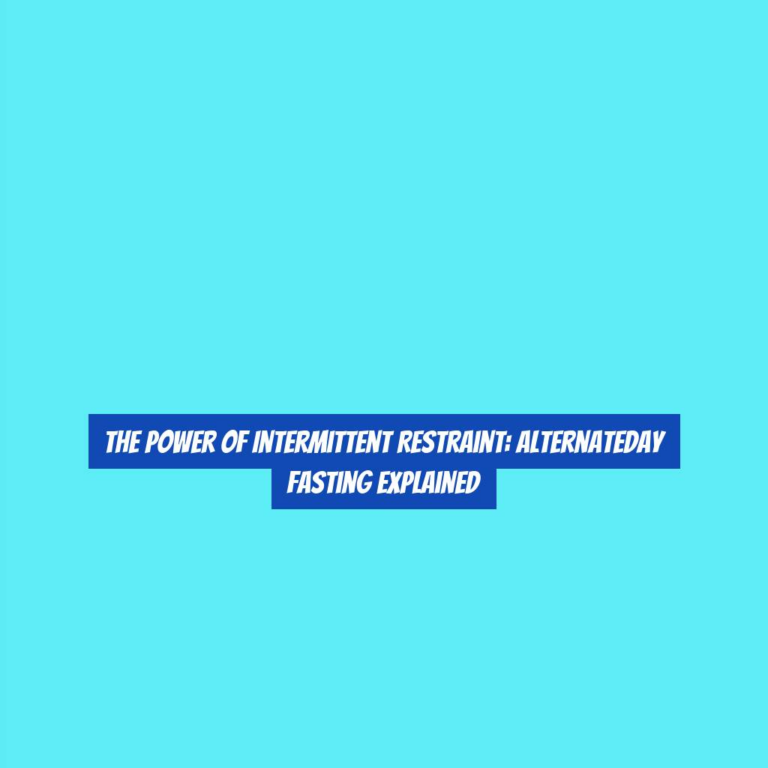From Plate to Body: Mastering the Art of Nutrient Absorption for Better Health
You are what you eat, or so the saying goes. But have you ever wondered if youG??re truly absorbing all the nutrients from your meals? The journey of nutrients from your plate to your body is a complex process influenced by various factors.
Understanding this process and mastering the art of nutrient absorption could be the key to unlocking better health. Intrigued by the idea of optimizing your bodyG??s ability to absorb nutrients?
Stay tuned to discover the science behind nutrient absorption and practical tips to enhance bioavailability.
The Science of Nutrient Absorption
Understanding how your body absorbs nutrients is essential for maintaining good health.
When you consume food, the process of nutrient absorption begins in your mouth. Enzymes in your saliva start breaking down carbohydrates while you chew. As you swallow, the food travels down to your stomach where it gets mixed with digestive juices. These juices contain acids and enzymes that further break down the food, allowing the nutrients to be released.
Next, the partially digested food moves to the small intestine, where the majority of nutrient absorption occurs. The walls of the small intestine are lined with tiny, finger-like projections called villi, which increase the surface area for nutrient absorption. Nutrients such as carbohydrates, proteins, fats, vitamins, and minerals are absorbed through the villi and enter the bloodstream.
From there, theyG??re transported to different parts of your body to support various functions. This intricate process highlights the importance of a well-balanced diet to ensure that your body can efficiently absorb the essential nutrients it needs to thrive.
Factors Affecting Absorption
Factors such as the presence of certain nutrients, the health of your digestive system, and the type of food you consume can significantly impact the absorption of essential nutrients in your body. Understanding these factors is crucial for optimizing your nutrient absorption and overall health.
Here are some key factors that can affect the absorption of nutrients in your body:
- Nutrient interactions: Certain nutrients can enhance or inhibit the absorption of others, affecting overall nutrient uptake and utilization.
- Digestive health: The integrity of your digestive system, including the health of your gut lining and the balance of gut bacteria, plays a crucial role in nutrient absorption.
- Food processing: The way food is processed and cooked can impact the availability of nutrients for absorption in your body.
- Medications and supplements: Certain medications and supplements can interfere with nutrient absorption, leading to potential deficiencies.
- Age and health conditions: Age-related changes and underlying health conditions can affect the bodyG??s ability to absorb and utilize nutrients effectively.
Considering these factors and making informed choices about your diet and lifestyle can help improve nutrient absorption and support your overall well-being.
Enhancing Nutrient Bioavailability
To optimize nutrient absorption for better health, itG??s essential to focus on enhancing the bioavailability of the nutrients in the foods you consume. Bioavailability refers to the extent and rate at which nutrients are absorbed and utilized by the body.
Several strategies can help enhance the bioavailability of nutrients. Firstly, consider pairing plant-based sources of iron with foods high in vitamin C, as this can significantly boost the absorption of iron.
Additionally, cooking certain vegetables can break down their cell walls, making the nutrients more accessible for absorption. For example, lightly cooking spinach can enhance the absorption of its nutrients.
Furthermore, including healthy fats in your meals can improve the absorption of fat-soluble vitamins like A, D, E, and K.
Moreover, fermented foods such as yogurt and kefir can enhance the bioavailability of certain nutrients and promote gut health.
Lastly, being mindful of potential nutrient interactions, such as calcium inhibiting the absorption of iron, can guide you in making optimal food combinations to enhance nutrient bioavailability.
Nutrient Absorption Tips
By implementing these nutrient absorption tips, you can further advance your efforts to optimize the bioavailability of essential nutrients in the foods you consume.
Here are some practical tips to enhance nutrient absorption:
-
Chew your food thoroughly: Taking the time to chew your food properly can aid in breaking down nutrients and making them easier for your body to absorb, leading to better digestion and absorption.
-
Pair iron-rich foods with vitamin C: Consuming iron-rich foods alongside sources of vitamin C, such as citrus fruits or bell peppers, can enhance the absorption of iron in your body.
-
Consume probiotic-rich foods: Probiotics can improve gut health, which in turn can enhance the absorption of nutrients. Incorporate foods like yogurt, kefir, and sauerkraut into your diet.
-
Avoid drinking with meals: Consuming large amounts of fluids, especially cold beverages, during meals can dilute digestive juices and hinder nutrient absorption. ItG??s best to drink fluids between meals.
-
Cook foods appropriately: Certain cooking methods can break down tough plant cell walls and make nutrients more accessible. For example, lightly steaming or saut+?ing vegetables can improve nutrient absorption.
The Impact on Overall Health
Improving nutrient absorption can have a significant impact on your overall health. It directly influences your bodyG??s ability to utilize essential vitamins and minerals for optimal functioning. When your body effectively absorbs nutrients, it can better support various bodily functions such as energy production, immune response, and tissue repair.
Proper absorption of nutrients also plays a crucial role in maintaining healthy bones, skin, and organs. Additionally, it can positively influence your digestive health. This reduces the likelihood of gastrointestinal issues like bloating, constipation, and malabsorption disorders.
Furthermore, enhanced nutrient absorption can contribute to better mental and emotional well-being. The brain relies on a steady supply of nutrients to support cognitive functions, mood regulation, and overall mental clarity. By optimizing nutrient absorption, you may experience improved focus, enhanced mood stability, and a reduced risk of neurological conditions.
Moreover, efficient absorption of nutrients can support cardiovascular health. It aids in the regulation of cholesterol levels, blood pressure, and overall heart function. It also contributes to better muscle function, athletic performance, and recovery from physical exertion.
Ultimately, prioritizing nutrient absorption can lead to an overall improvement in your health and well-being.
Conclusion
So, next time you sit down to eat, remember that itG??s not just about whatG??s on your plate, but how your body absorbs those nutrients.
By understanding the science of nutrient absorption and the factors that affect it, you can take steps to enhance bioavailability and optimize your health.
Small changes in your eating habits and lifestyle can have a big impact on how your body processes and uses the nutrients you consume.
Your body will thank you for it!



